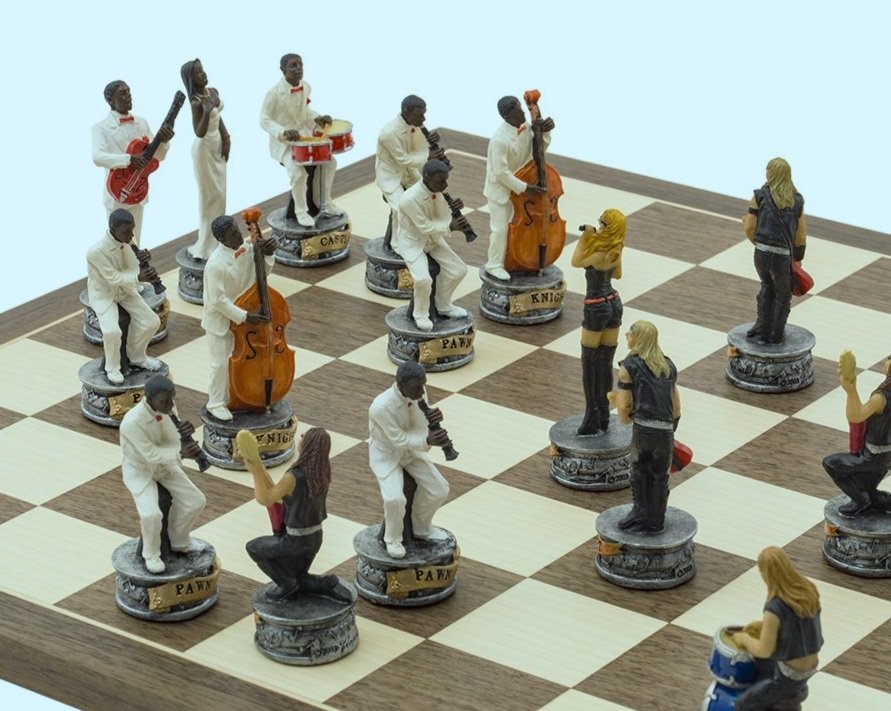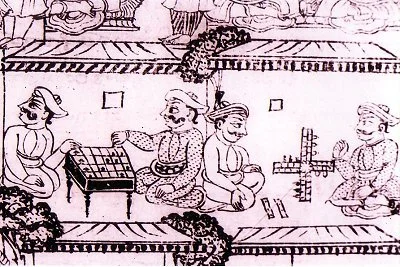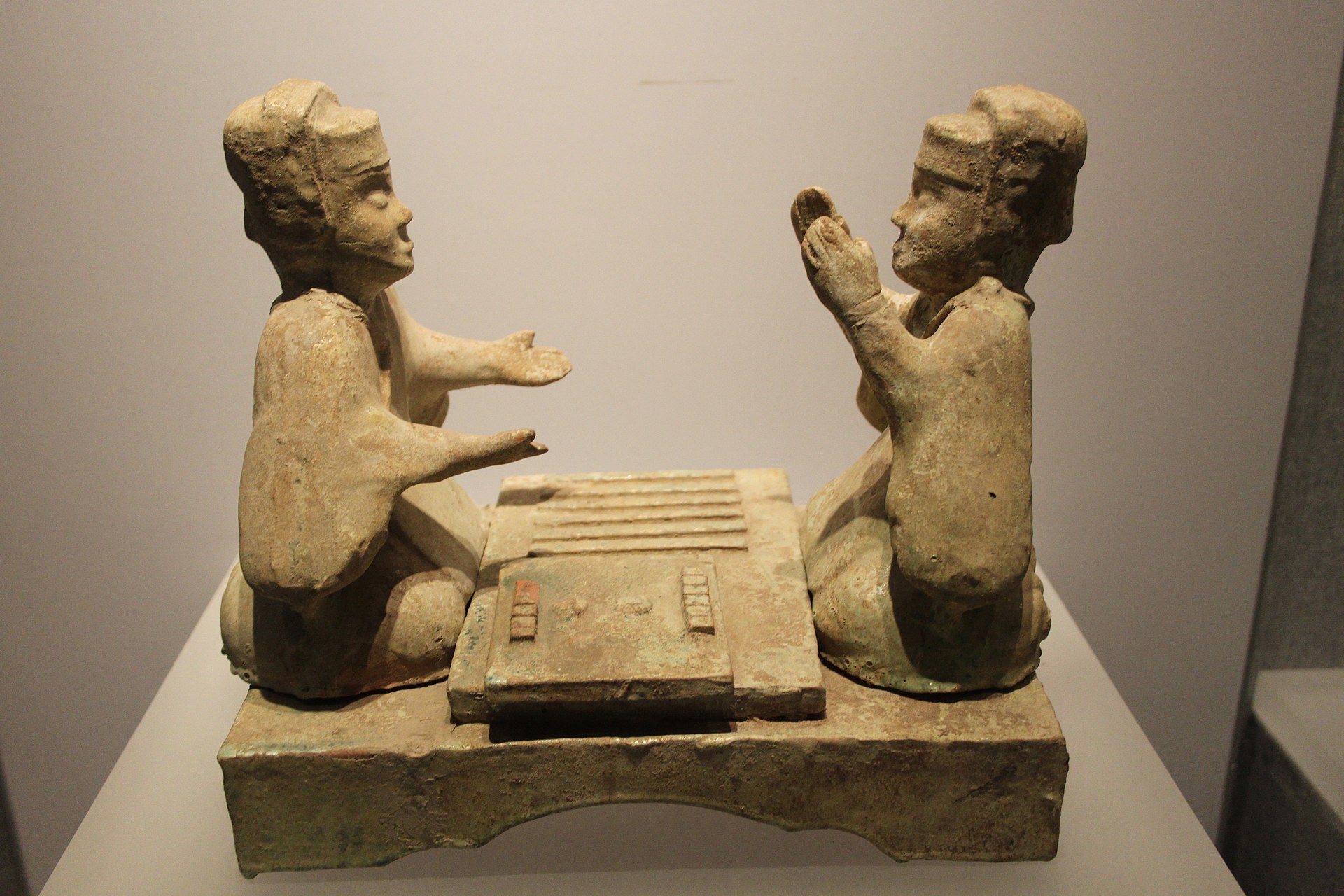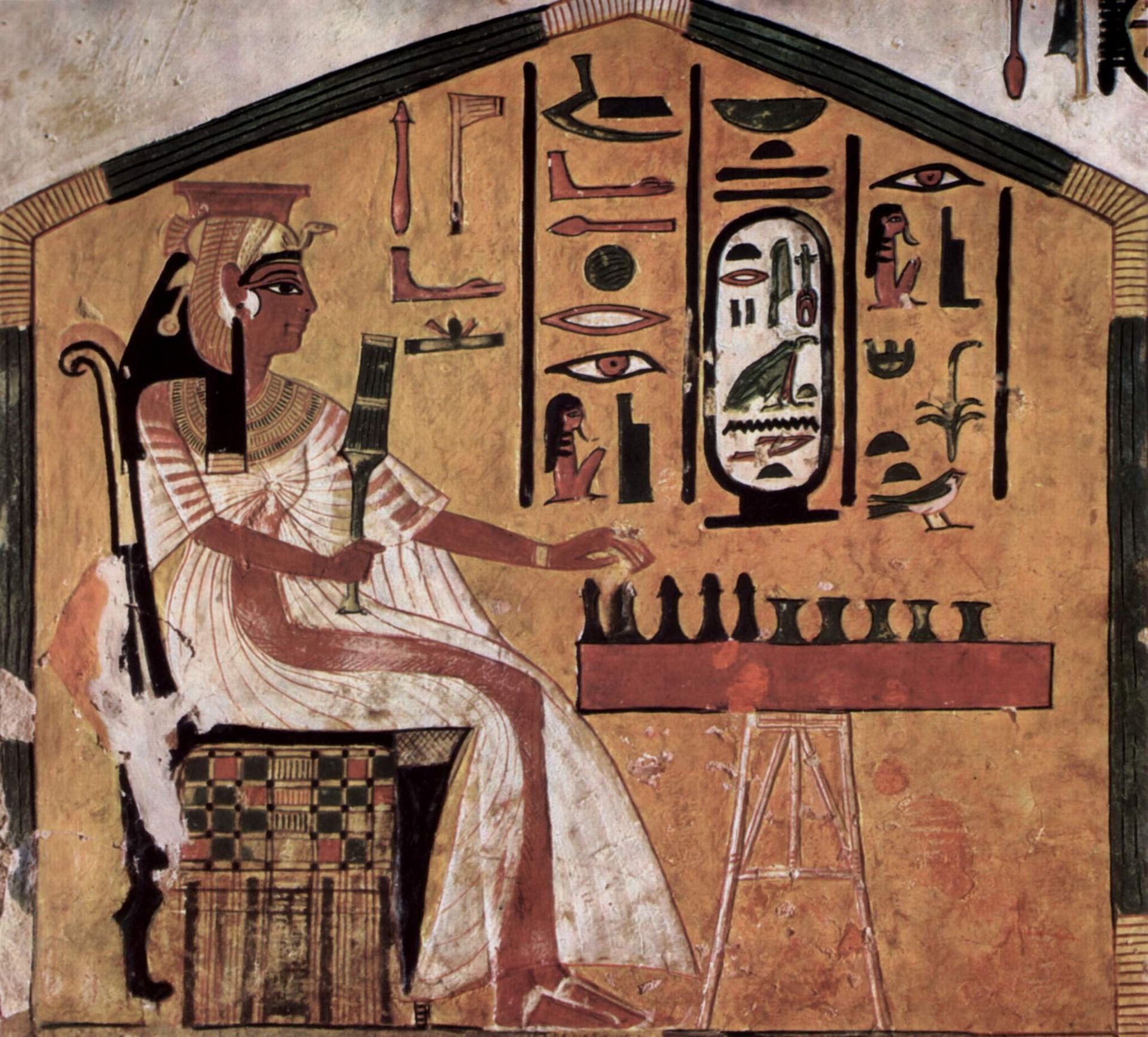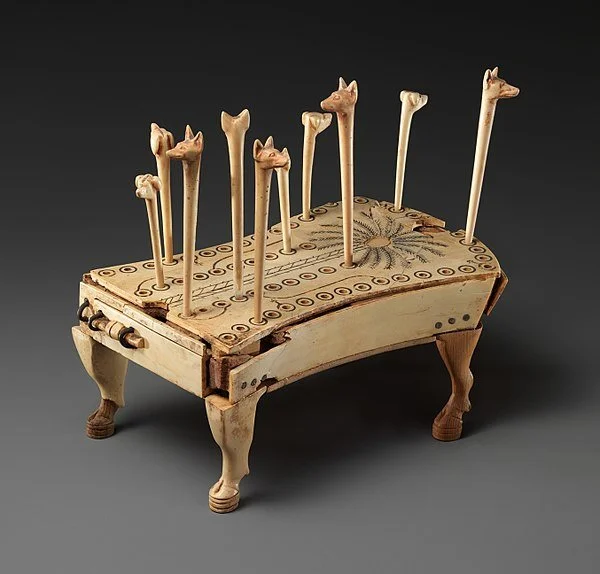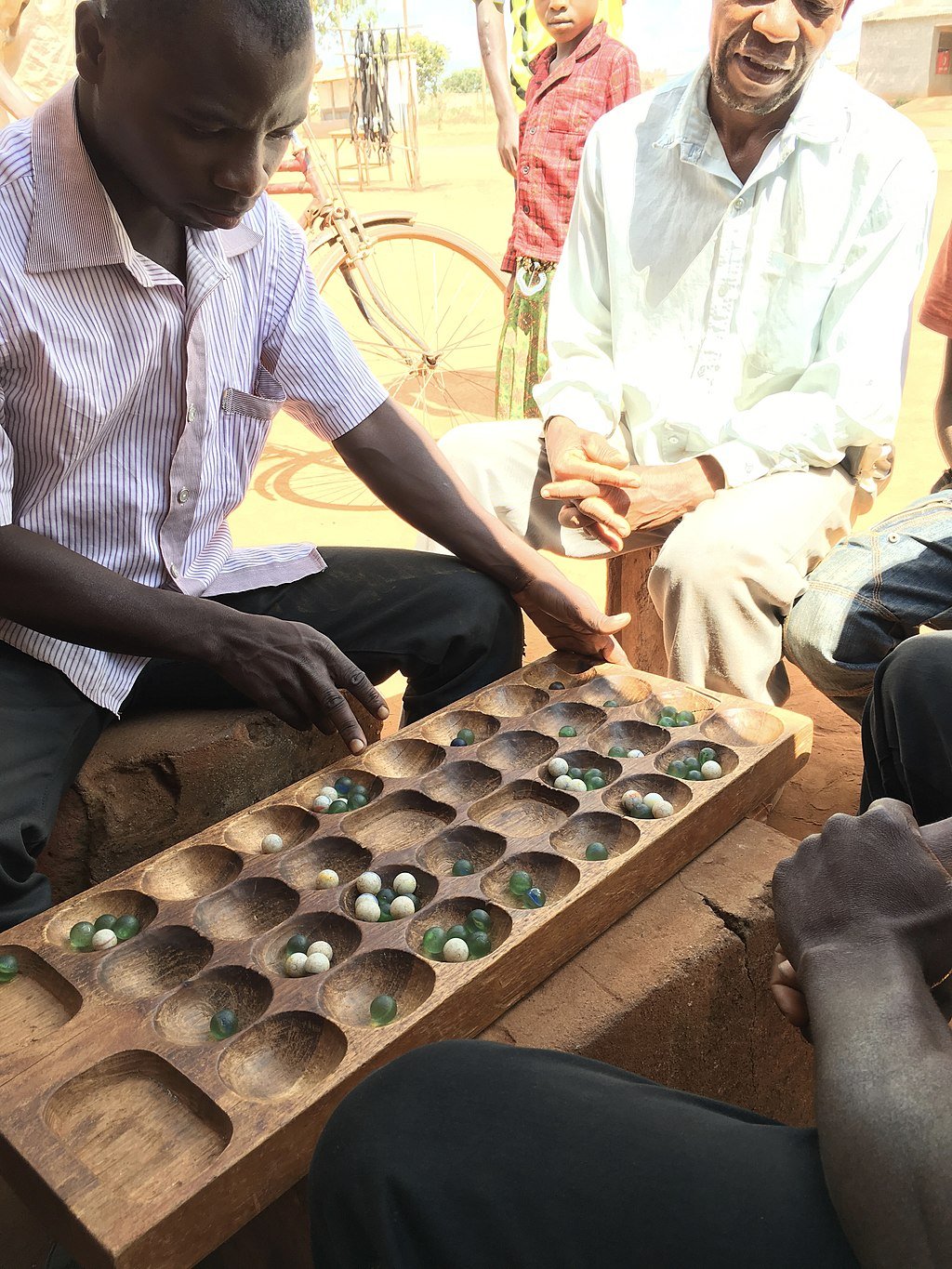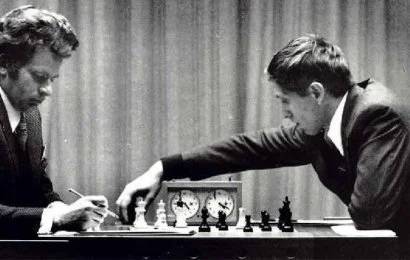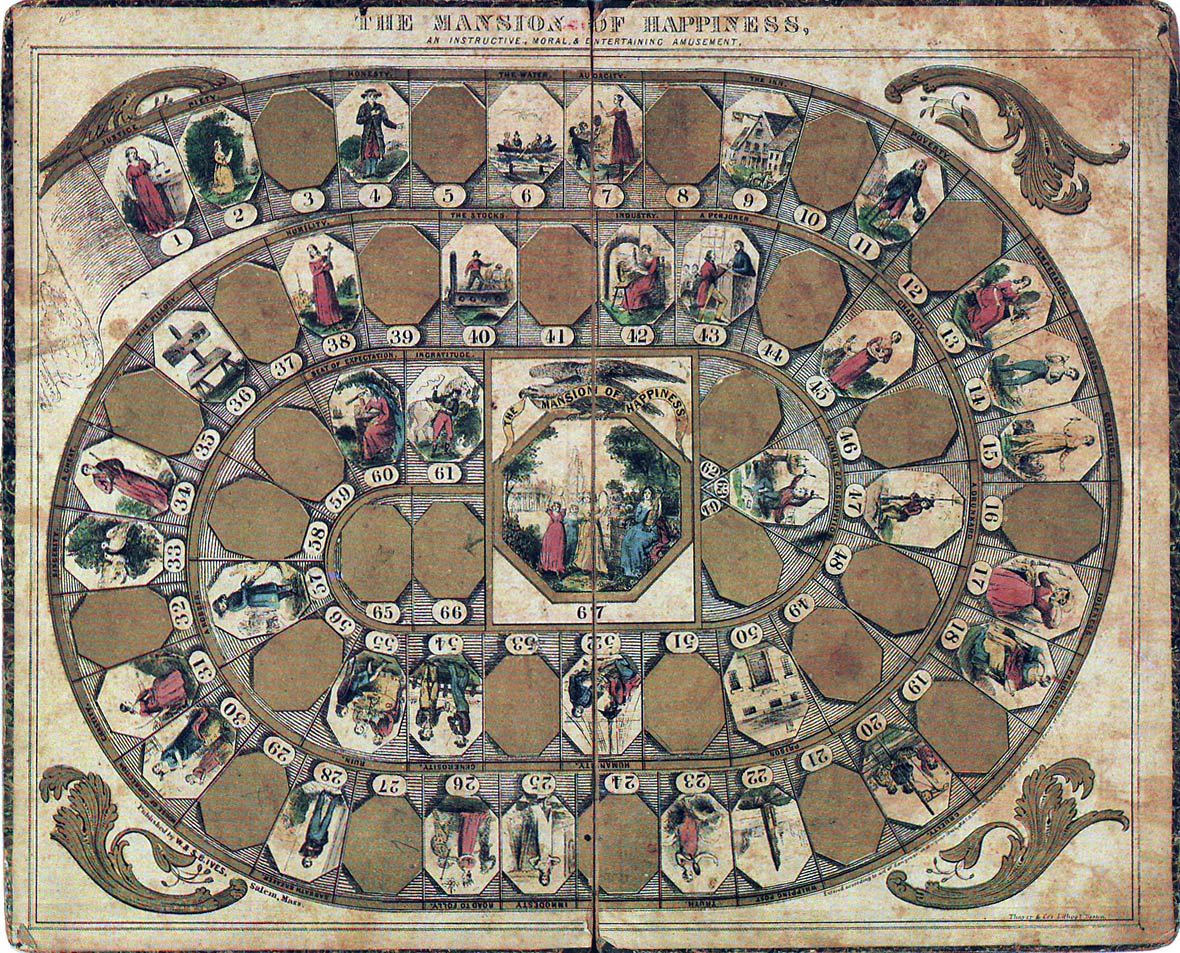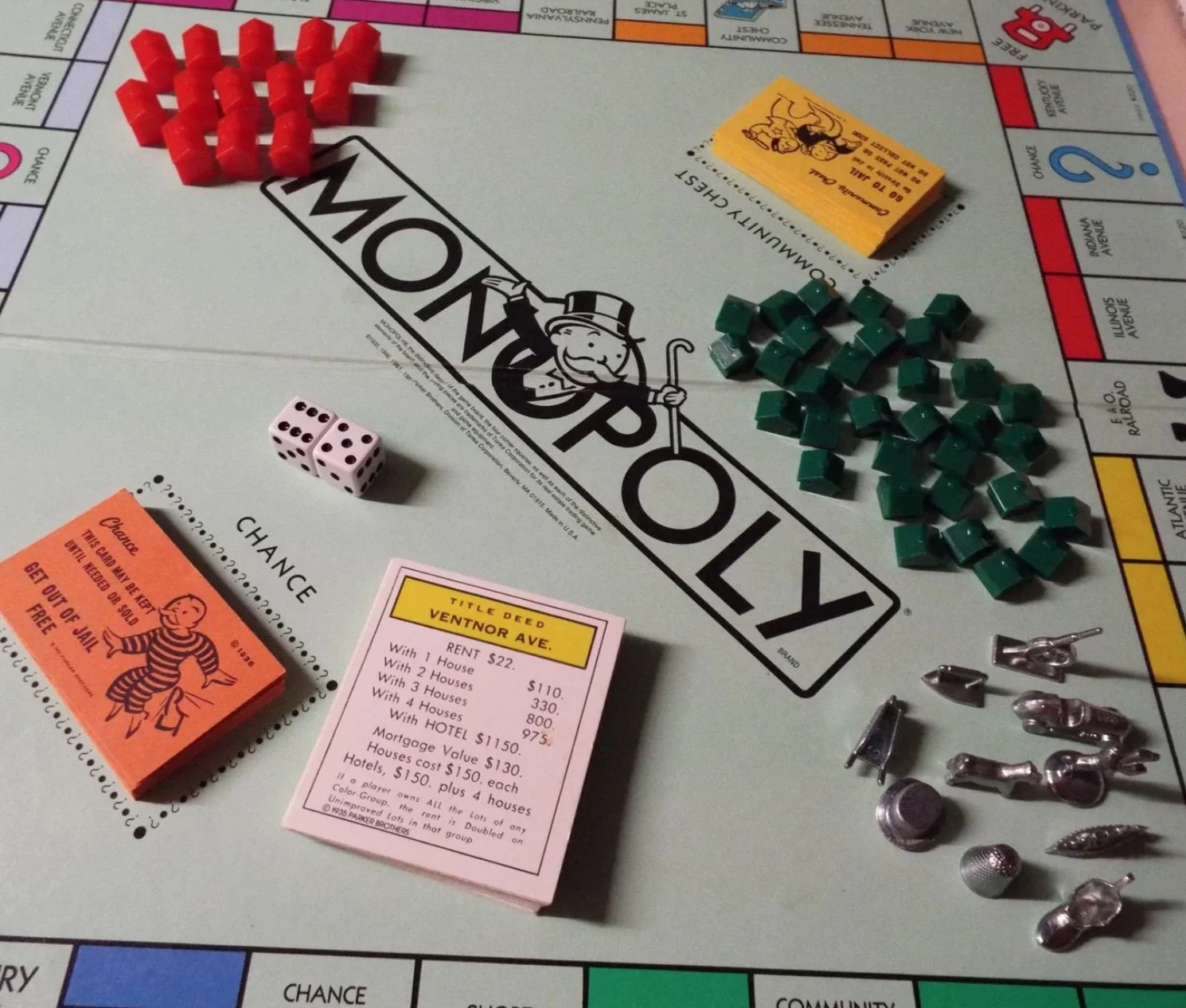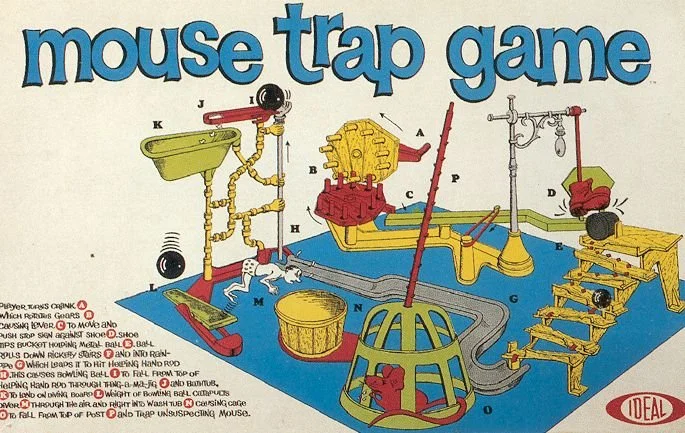By The Landlord
“A computer once beat me at chess, but it was no match for me at kick boxing.” – Emo Philips
“I think it's wrong that only one company makes the game Monopoly.” – Steven Wright
“Backgammon is a game where man battles fate. Chess is a game where man battles man. Go is a game where man battles himself.” – Ōtake Hideo
“I failed to make the chess team because of my height.” – Woody Allen
In this digital age of screens and social media, there is something old-fashioned and comfortably nostalgic about board games. They may be what families do at Christmas post-dinner when when there's no longer anything mutually agreeable on the telly. They might be more particular for club players such as chess or draughts (checkers), or in ancient streets, markets, parks, bars and cafes around the world, with smoky, noisy scenes of Go, mancala, backgammon or dominoes from China to Japan, India to the Caribbean. Or you might find in more modern cafe or bar settings, where there's a trend for all kinds or retro cardboard box options, the sort that fills old cupboards, from snakes & ladders, ludo or Cluedo, Trivial Pursuit, Risk, Monopoly, Scrabble, Boggle, Connect 4, Mouse Trap, Coppit or Sorry!
In a busy, serious world, board games are mere leisure activities, but for centuries they’ve been the village or town square in miniature, a focus point of social gathering, learning, energy and interaction. And what's absorbing about such games is they play out patterns of human life and behaviour in microcosm. They variously capture ingredients of skill and strategy, dice-rolled chance and luck, inevitability but also surprise, planning, failure, patience, racing, capturing, compilation, war and invasion, subtlety, deception, capitalism and collaboration. In short they are a playful history of the human race and how it thinks and operates. Often then, not so trivial after all …
The more general subject of games (with excellent resulting playlists by regular here Nilpferd) has come up in the past – one that has taken in a broader perspective of wider life game playing, particularly in the strategy (and cheating) for love, as well as touching on specific examples outside the board, including card games and video games, but those could make up future separate song topics in themselves.
So let's restrict this topic specifically to board games, defined as played on a tabletop with moveable parts and pieces. It sounds narrow at first, but it is most certainly not, allowing a rich and colourful world of scenes, terminology and phrases cited in lyrics, with specific reference as well in metaphor. There's no need to know all the rules, just a reference to them as a key element, in song lyrics, literally or metaphorically.
Board games have been around as long as human communities. Formats, materials and pieces may change, but the principals largely remain constant.
Men of the board …
Game types overlap of course but many follow similar patterns. Those involving pieces that race or chase to a destination (such as the ancient Indian pachisi, a forerunner of ludo).
Two-player: Han dynasty
There are also what's known as abstract strategy games, taking on battles and eliminations, such as Ancient Chinese Go or Old Norse Tafl, also known as hnefatafl, created on a checkered or latticed game board with two “armies” of uneven numbers. They might also have been influenced by the Ancient Roman game Ludus latrunculorum, a forerunner to draughts. But there also many sub-categories combining alternative elements.
Ancient games: hounds and jackals, and senet (above) from Egypt
It's an activity that seemed to have formed independently around the world. Ancient Egyptians were prime board game players, keen on senet, as well as mehen, or another game called hounds and jackals. Backgammon was played in Mesopotamia about 5,000 years ago. ashtapada, chess, pachisi and chaupar originated in India. Go and liubo originated in China, patolli originated in Mesoamerica played by the ancient Aztecs and the royal game of Ur was found in the royal tombs of Ur, dating to Mesopotamia 4,600 years ago. And let's not forget the many forms of mancala, likely originating in Africa millennia ago, originally using beads dropped in a rows of cups carved in wood, counting and capturing those of the opponent. It seems that we've always been at play around some kind table, floor cloth or other focus point.
Mancala-style: Bao players in Mozambique
Perhaps the most obvious lyrically referenced board game might be chess. Your suggestions might use some terminology, or refer to famous players and matches. The Cold War politically-inflected battles of Boris Spassky v Bobby Fischer, the latter a brilliant American teenager who became ultimately a troubled, paranoid, difficult personality. Or perhaps your songs might refer to the classic battles of the Russians Anatoly Karpov and Gary Kasparov, at times kicking each other under the table. Or in recent years, Magnus Carlsen and Hikaru Nakamura? The game has also gathered further interest with the glamorous and also oddball psychological drama TV series The Queen's Gambit.
Spassky v Fischer, 1972
Whether it's a political or a personal battle, or the two become conflated, chess seems to always produce exteme reactions, and it's also a focus of fascination for many artists in other fields, including, fiction, film and music.
“Chess helps you to concentrate, improve your logic. It teaches you to play by the rules and take responsibility for your actions, how to problem solve in an uncertain environment,” said Gary Kasparov.
British champion Nigel Short, who had a brief time in the limelight, but also, somewhat inaccurately regarded himself as more a rock star than chess player, reckoned that: "Chess is ruthless: you've got to be prepared to kill people."
“Chess can be described as the movement of pieces eating one another,” declared Marcel Duchamp.
“It is impossible to win gracefully at chess. No man has yet said ‘Mate!’ in a voice which failed to sound to his opponent bitter, boastful and malicious,” wrote AA Milne.
“Chess is as elaborate a waste of human intelligence as you can find outside an advertising agency,” added Raymond Chandler.
Stanley Kubrick was a chess obsessive, keenly observing this parallel with how we conduct our lives: “You sit at the board and suddenly your heart leaps. Your hand trembles to pick up the piece and move it. But what chess teaches you is that you must sit there calmly and think about whether it's really a good idea and whether there are other, better ideas.”
Chess is also hobby of many music stars, particularly in the combative world of hip hop, with Wu-Tang Clan's GZA, as well as Dizzee Rascal. It is often compared with boxing and chess-boxing is a sport popular in eastern Europe, where alternate three-minute rounds on the board and in the ring, combining mental and physical strategy and stamina, often result in in a knockout blow, but generally with a check mate.
Dizzee Rascal sees a parallel between the two sports. "When you're actually boxing, unless it's a proper grudge match, it's less about beating the person up and more about being better within yourself. Being patient, timing things, like chess, so really, it's as much down to you as what the other person does.
The Mansion of Happiness (1843)
Mass production board games began form in the 19th century. But perhaps the biggest of the early 20th century, and another, but more modern game that might offer many lyrical reference is Monopoly, derived from The Landlord's Game, created by Lizzie Magie in US in 1903 as a way to demonstrate that an economy that rewards individuals is better than one where monopolies hold all the wealth. Originally published by the Parker Brothers in the US and Waddingtons in the UK in 1935, the latter with those famous London landmarks, it's been a political vehicle as well as a source of huge commercial success. There have been many variants. In 1941, the British Secret Intelligence Service had John Waddington created a special edition for prisoners of war held by the Nazis. And in some contrast, there's even been a Simpsons cartoon edition but there are many all over the world.
An Australian edition of Monopoly?
Monopoly is also known for its character pieces, such a the battleship, boot, cannon, horse and rider, iron, racing car, Scottie dog, thimble, top hat, and wheelbarrow. What's your choice? And will you not pass go and go straight to jail, buy hotels, or win £200 in beauty contest?
The game has certainly inspired or reflected many figureheads of capitalism, from Margaret Thatcher privatising railways and utilities and some careers, such Donald Trump and his father from whom he inherited everything, are essentially a game of Monopoly. Author and mass property owner Robert Kiyosaki declares: "I began playing Monopoly for real when I was 26 years old. Today, my wife and I have approximately 1,400 little green houses – each paying us monthly. You do not have to be a rocket scientist or have a Harvard degree to play Monopoly for real." Bully for him.
And here's British director, Ridley Scott, his recent epic Napoleon also telling a story of brutal land grabbing. But here's his expression of the game above a famous city: "If you circle above Central Park at night in a helicopter, you're looking down at the most expensive real estate in the world. It's the American Monopoly board."
But that's enough dice-throwing from me. There are many board game types and related songs in play. Perhaps you'll find a reference to the role-playing geek favourite Dungeons & Dragons, or the crime-themed Mafia or The Resistance? Word games? Or stacking games, or the building of that delicate, often malfunctioning Mouse Trap game where the boot kicks the ball down perilous route? Some dextrous skill or collapse in Buckaroo, Mikado, Jenga or KerPlunk? Or some guessing and deduction in the form of Mastermind or Battleships? Your guess is as good as any.
Ideal? Not always … The Mouse Trap Game
So then, it's time to introduce this week's guest guru, chairman of the board and game master, whose interpretation of the rules and musical judgement will be final - the marvellous Maki. Place your offering to the board below for deadline 11pm UK time on Monday for playlists published next week. It’s a multiplayer game. Now it's your go ...
New to comment? It is quick and easy. You just need to login to Disqus once. All is explained in About/FAQs ...
Fancy a turn behind the pumps at The Song Bar? Care to choose a playlist from songs nominated and write something about it? Then feel free to contact The Song Bar here, or try the usual email address. Also please follow us social media: Song Bar Twitter, Song Bar Facebook. Song Bar YouTube, and Song Bar Instagram. Please subscribe, follow and share.
Song Bar is non-profit and is simply about sharing great music. We don’t do clickbait or advertisements. Please make any donation to help keep the Bar running:

